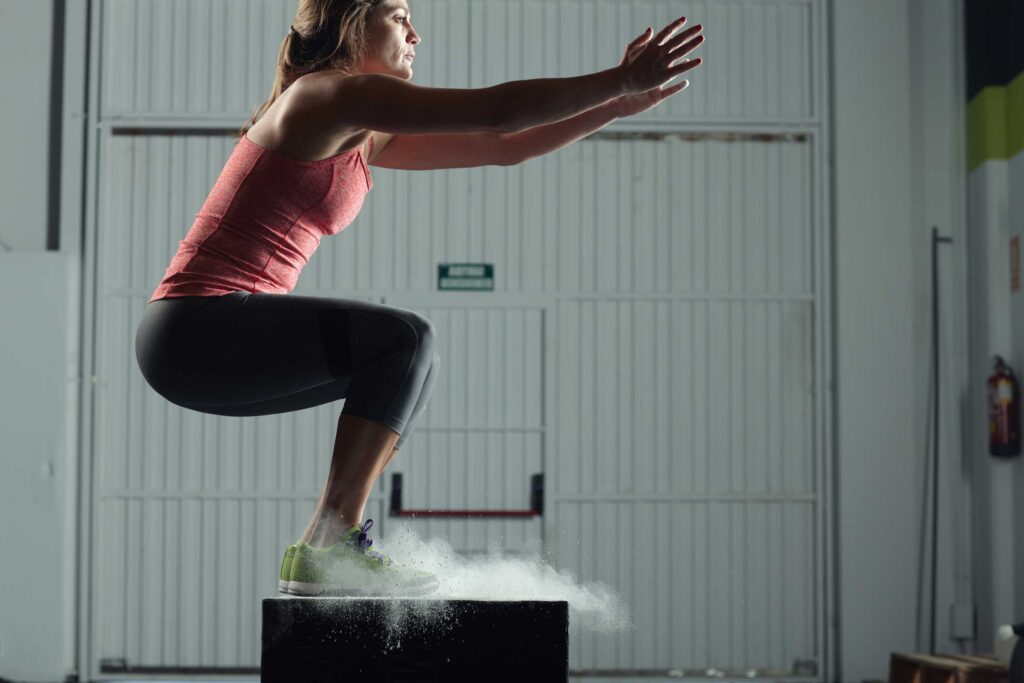Advertisement
Fuel Your Workout Like the World’s Best Athletes
Nutrition tips approved by Olympians

At the last Summer Olympic Games, athletes ate an approximate combined total of 19 tonnes of eggs and 330 tonnes of vegetables and fruits. As we prepare for this year’s Summer Olympics in Brazil, looking at what professional athletes use to fuel their workouts gives us insights into our own sports nutrition.
Advertisement
Calorie countdown
“As professional triathletes, we understandably burn a lot of calories since we’re training 20 to 30 hours per week,” says Meredith Kessler, winner of Ironman Canada and veteran of more than 50 other Ironman races. “You need calories to sustain your energy levels, both mentally and physically.”
Our basal metabolic rate (BMR) outlines the calories we burn at rest. How hard you push yourself in the gym then tells you the total calories you need to fuel your workout:
- light exercise 1-3 days a week: multiply BMR by 1.375
- moderate exercise 3-5 days a week: multiply BMR by 1.55
- strenuous exercise most days of the week: multiply BMR by 1.725
Find your BMR
There are many online BMR calculators. We can also calculate it by hand:
- Men: (88.4 + 13.4 x your weight in kilograms) + (4.8 x your height in centimetres) – (5.68 x your age)
- Women: (447.6 + 9.25 x your weight in kilograms) + (3.10 x your height in centimetres) – (4.33 x your age)
Advertisement
Embrace carbohydrates
A gold medal-winning performance requires a balanced mix of carbohydrates, protein, and fat. And while many of us feel carb averse, they’re important in the right amounts. “Carbs are the main fuel used in exercise and the only fuel used by the brain,” reports Dr. Scott Weiss, a board-certified trainer who’s worked with Olympic wrestling, boxing, and gymnastic teams. “The more carbs you consume … the more energy you will have. Despite popular belief, carbs are not your enemy.”
Athletes need approximately 50 to 60 percent of daily calories coming from carbohydrates. “I generally eat a balanced diet … but if I’m doing longer training sessions I’ll try to eat a bit more carbohydrates,” says Olympic rower Will Dean of Kelowna, BC. Some of Dean’s favourite easily digestible carbs include sweet potatoes, rice, and sourdough bread.
Snack smart
Dean sometimes packs portable carb snacks for an energy boost. “I like dates, fruit, or a spoonful of honey with some sea salt,” says Dean. “It’s digestible and packed with nutrients.”
Advertisement
Pump up with protein
“Athletes should aim for 20 to 30 g of protein per meal so they can feed their muscles adequately,” says Catherine Naulleau, registered dietitian and sports nutritionist for the Canadian Olympic Committee. “Endurance-type athletes depend on carbohydrates to perform, [while] resistance-type athletes need to eat more protein.”
Athletes need 15 to 20 percent of their daily calories coming from protein, with resistance athletes on the higher end of the scale. Some of the healthiest, leanest sources of protein include beans, Greek yogurt, spirulina, tofu, and chicken breasts. At the last Summer Olympics, athletes ate more than 31 tonnes of chicken and other poultry.
Advertisement
Fill out with fat
Fat is the last of the nutritional trinity. For world-class performance, calories from fat should be less than 30 percent of our daily total. Healthy fats include olive oil, fatty fish—the omega-3 fats in fish may optimize exercise performance and help us burn body fat—and walnuts.
Advertisement
Boost energy with a pre-workout snack
Before exercise, athletes Kessler and Dean both think caffeine is something to consider. “I’m not above having a cup of coffee if I’m particularly tired,” says Dean. Studies show caffeine may improve endurance and reduce pain while we’re in the gym. The International Olympic Committee has caffeine limits for athletes, but normal coffee drinking rarely comes close to this limit.
For a caffeine-free alternative, toss a banana into your gym bag. In one study bananas improved exercise performance just as efficiently as a sports drink, and researchers noted that the fruit’s vitamins and minerals added extra benefits.
Timing is key
If you plan to eat before exercise, time it right. “A proper meal one to three hours prior should suffice as it provides ample time to have the body digest the nutrients that were just consumed,” says Weiss.
Advertisement
Drink your way across the finish line
While we exercise, staying hydrated moves nutrients to where they’re needed and reduces training-related stress. In fact, athletic performance drops with as little as 1 percent dehydration.
A bathroom trip quickly tells us if we’re drinking enough. “Before exercise, athletes should make sure their urine is pale,” recommends Naulleau. “After training, [athletes should] drink water—at least 2 cups or 500 mL—and monitor their urine colour. It’s the best indicator for hydration!” Generally, stick with water, she advises; however, in some cases she says that juice or sports drinks are good—especially if we’re in a very long endurance-style event.
Advertisement
Rev up recovery
Typically, “30 minutes after a hard training … is when the body is more likely to recover properly,” says Naulleau. And just as carbohydrates, protein, and fat are key macronutrients to measure leading up to an event, they also play a key role in recovery. “Studies suggest athletes should eat 10 to 20 g of protein and 1 g of carbohydrates per kilogram of body weight to make sure they recover properly,” she notes. Naulleau’s top suggestions include almonds, fig bars, and crackers.
A protein shake conveniently rehydrates us while delivering a dose of recovery-boosting nutrients. For whole-food options, international bodybuilding professional Tobias Young pairs oatmeal with egg whites or lean ground turkey with yams.
Advertisement
Top off with supplements
Endurance-type athletes can try something a little unconventional: beetroot juice. “[The nitrates in] beetroot juice help the muscle become more efficient by using less oxygen and contracting better,” Naulleau explains. Research agrees that beets may improve athletic performance.
For resistance-type athletes and sprint-type sports, Naulleau recommends creatine and beta-alanine. These supplements can help “increase power and recovery time between sets,” she says.
Multis to the rescue
“The earth is not as rich as it once was, so neither are our diets,” says Weiss. To ensure athletes are receiving adequate vitamins and minerals, Weiss recommends a multivitamin.
Advertisement
Listen to your body
Whatever sport or exercise you do, listen to your body. We’re not Olympians, after all. Restless sleep, chronic fatigue, or long-lasting muscle pain are some of our bodies’ ways of telling us we may need to adjust our exercise routines or nutrition.
“Let food be thy medicine,” goes a quote commonly attributed to Hippocrates. In this case, let food be thy workout fuel.
Protein supplements 101
“I look for the type of protein that will help meet my training needs,” says bodybuilder Tobias Young. Luckily, we have many options to choose from.
- Whey products are some of the most popular supplements. “I would take a whey protein before and after a workout because whey is a fast-digesting protein that contains a high amount of the essential amino acids,” says Young. “I prefer whey isolate … because most of the lactose, fat, and carbs are removed.”
- Casein, component of milk, slowly releases into our bloodstream, often over the course of several hours. “I always take casein before bed because it is a slow-digesting protein,” says Young. “Casein also makes a great protein pudding!”
- Hemp, soy, and pea protein powder offer vegan alternatives. Hemp’s omega-3 content may even help reduce inflammation.





